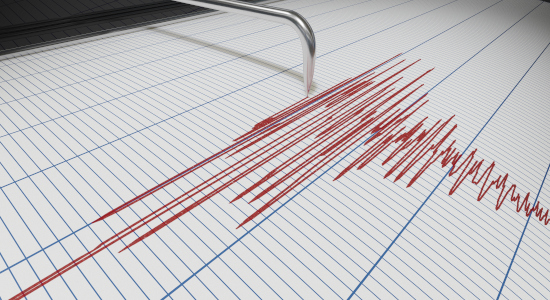
June 30, 2021 – The Wisconsin Supreme Court has unanimously ruled that statements made during a post-polygraph interview with a suspect were admissible as evidence, concluding the defendant voluntarily made the statements without police coercion.
Police were investigating allegations of child sexual assault in 2014 in Washburn County. A four-year-old girl told her caregiver that Adam Vice had sexually assaulted her. He asked what he could to clear his name, and officers suggested a polygraph test.
An officer gave Vice a ride to the examination four days later because Vice did not have other transportation. The day of the exam, the officer arrived at Vice’s house. Vice sat in the front seat, without handcuffs, and the officer reiterated that the test was voluntary.
They did not discuss the sexual assault allegations during the two hour-drive to the Eau Claire Police Department. Before the exam, Vice signed a “waiver of rights form” and a “polygraph examination consent” that noted his participation was voluntary.
Before taking the exam, a data sheet also captured Vice’s physical condition, noting he was not experiencing discomfort, he slept fine the night before, and he did not consume drugs or alcohol recently. He noted that he had a high school education.
Vice took the polygraph test and was then escorted to another interview room. Officers then interviewed him for 45 minutes, referencing the exam repeatedly. They told Vice he did not pass and it was clear he was not telling the truth. Vice then confessed.
Vice said he didn’t remember sexually assaulting the firl, but officers insisted that he did remember, based on his answers to the polygraph questions. Detectives told him the victim detailed the assault to them.
Vice began to offer details about the assault, the detectives noting that it was be better for him to tell the truth at that stage to get “leniency.” Ultimately, Vice was charged with one count of sexual contact with a person under the age of 13.
Vice filed a motion to suppress the statements he made to police, arguing the detectives used deceptive and coercive tactics by repeatedly telling him he failed the test. The detectives never informed Vice that the polygraph results are not admissible in court.
The circuit court granted Vice’s motion to suppress the post-polygraph statements. On appeal, the appeals court reversed, concluding that repeated references to the failed polygraph test, on their own, did not render Vice’s statements involuntary.
On remand, the circuit court did a “totality of the circumstances” analysis, as instructed by the appeals court, and ruled again that his statements were not made voluntarily but under pressure and coercion by the detectives, who kept referencing the polygraph test.
The appeals court affirmed. In State v. Vice, 2021 (June 16, 2021), the Wisconsin Supreme Court unanimously reversed (6-0), concluding “the statements Vice made during his post-polygraph interview are admissible because: (1) the interview was discrete from the polygraph examination; and (2) the statements were not the product of police coercion, and therefore were voluntary.”
Discrete Events, Voluntary Confession
The majority noted that polygraph test results and statements made by suspects during polygraph exams are generally inadmissible, but “[s]tatements made during a post-polygraph interview are admissible into evidence when they satisfy the two-part test.”
 Joe Forward, Saint Louis Univ. School of Law 2010, is a legal writer for the State Bar of Wisconsin, Madison. He can be reached by email or by phone at (608) 250-6161.
Joe Forward, Saint Louis Univ. School of Law 2010, is a legal writer for the State Bar of Wisconsin, Madison. He can be reached by email or by phone at (608) 250-6161.
First, courts determine was the post-polygraph interview was a discrete event from the polygraph examination. Second, the courts determine if the post-polygraph interview and the polygraph exam “are so closely associated” as to consider them as one event.
Under that lens, the majority determined that the post-polygraph interview and the polygraph examination were separate and discrete events, even though the detectives repeatedly referred to the polygraph results in the post-polygraph interview.
The majority also ruled that Vice made his post-polygraph statements voluntarily and there was no police coercion or pressure that rendered them involuntary.
The facts established that Vice initiated the polygraph examination to “clear his name,” and he was informed that he was not required to take the polygraph exam, and it did not rise to the level of “coercion” for the detectives to reference the polygraph results.
“[N]one of the four tactics singled out as problematic by the court of appeals were coercive,” wrote Justice Jill Karofsky.
“Police may, and often do, engage in multiple tactics and strategies in the same interview without rendering coercive what would be permissible in isolation. We conclude that the tactics employed by the officers during Vice's post-polygraph interview, both in isolation and in the aggregate, were not coercive.”
Concurrence
Justice Brian Hagedorn wrote a concurring opinion. He agreed with the result but highlighted and disagreed with majority’ss explanation of the two-part test to determine the admissibility of statements made in post-polygraph interviews.
“I agree with the majority's conclusion that, with respect to voluntariness, reference to polygraph results is merely one factor in a totality of the circumstances analysis,” he wrote. “I part ways, however, with the majority's conclusion that reference to a polygraph is an ‘important’ component of the discreteness analysis.”
“Rather than double down on one unclear phrase, we would do better to simply clarify and reinforce what I think the law has been up until this point: reference to the results of a polygraph, for both discreteness and voluntariness, is only one potentially relevant fact in a totality of the circumstances analysis.”
Justice Ann Walsh Bradley withdrew from participation.
